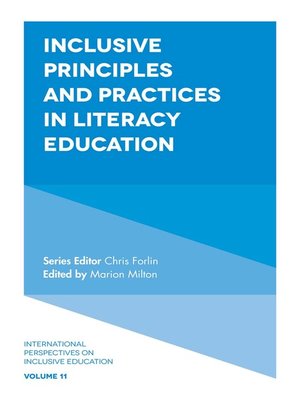International Perspectives on Inclusive Education, Volume 11
ebook ∣ Inclusive Principles and Practices in Literacy Education · International Perspectives on Inclusive Education
By Marion Milton

Sign up to save your library
With an OverDrive account, you can save your favorite libraries for at-a-glance information about availability. Find out more about OverDrive accounts.
Find this title in Libby, the library reading app by OverDrive.



Search for a digital library with this title
Title found at these libraries:
| Library Name | Distance |
|---|---|
| Loading... |
This volume draws together research and practice from the fields of literacy education and inclusion. As such it provides an insight into current theory, research and issues associated with teaching literacy to all students in inclusive classrooms. Literacy remains a critical success factor for students, as the basis for concurrent and future learning throughout the curriculum. As such, we take a broadened view of inclusive education and include not only students with disabilities and learning difficulties, but also those whose linguistic, cultural or social backgrounds act to marginalise or inhibit their learning.
Numerous books publish research on inclusive education but this volume is dedicated to the critical aspect of literacy and inclusive practices in a range of countries. The changes to literacy in today's technological world are considered along with the impact on teaching and learning. Examples of good practice are provided, as are models of effective inclusion and differentiation in literacy teaching at different year levels, for different groups of students and the application in important subjects such as mathematics and science.
Chapter authors have expertise in the fields of pre-school and early literacy, mathematical, technology and science literacy, English as an additional language, literacy difficulties in primary and secondary schools, inclusion and special education. They provide highly relevant research and useful information for researchers, teacher educators and those engaged at all levels of the implementation of inclusive literacy education in schools.







